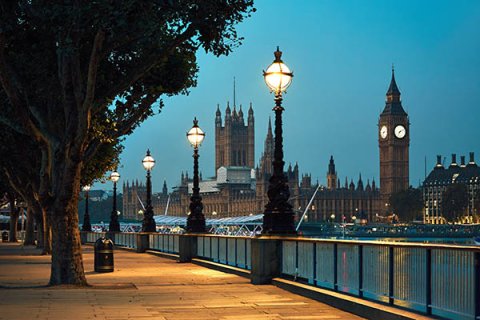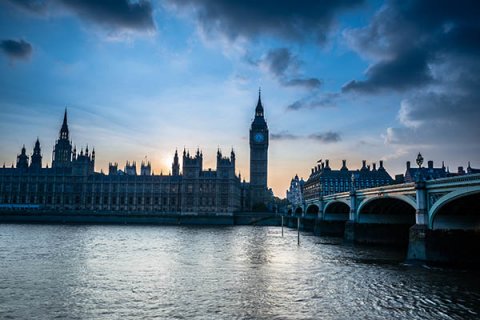Foreign citizens who plan to relocate to the United Kingdom or stay in the country for a long period most often decide to purchase real estate in London or another advanced city. How to buy a home in Great Britain in 2023, how to become a property owner for citizens of the Russian Federation, and the property taxes in the UK for non-residents. We will discuss the details below.
Contents:
- The rights of foreigners to buy real estate
- Nationals of which countries are eligible to buy a home in Great Britain
- What are the types of real estate available for purchase?
- What rights does a foreigner get after buying property in the UK?
- What are the obligations of foreigners when buying real estate in the UK?
- Is it possible to execute a real estate transaction remotely?
- How can a citizen of the Russian Federation buy a house in the United Kingdom?
- Stages of property registration in Great Britain
- UK property tax for foreigners
- We will assist you in becoming a property owner in the United Kingdom!
The rights of foreigners to buy real estate
In England, there are no legal restrictions on the purchase of property for non-residents. Overseas nationals even have the opportunity to apply for mortgage loans at local banks. However, people who have been residing in the country for less than two years and are unemployed may face more stringent requirements.
Non-residents have to pay the same taxes on real estate and related income as UK residents. Stamp duty is paid at the same rate as capital gains tax if the owner resells the property at a profit, and on-resident landlords need to pay the same rental income tax as resident landlords. That being said, the former may receive an exemption if they pay this tax in their home country and that country has a double tax agreement with the UK.

Nationals of which countries are eligible to buy a home in Great Britain
As mentioned earlier, there are no restrictions on the purchase of property for non-residents in the United Kingdom. Citizens of any country have the right to buy a home in England.
What are the types of real estate available for purchase?
Overseas nationals have the right to acquire any type of British real estate, whether it is a new unit under construction or second-hand property. Buildings can have any configuration, architectural style, etc.
What rights does a foreigner get after buying property in the UK?
Foreigners can choose between several types of ownership. The most common options are freehold and leasehold. Freehold allows you to own real estate and the land where it is located for an unlimited period.
Leasehold means that only building ownership is acquired (and not the land where it is located) and this is only for a certain number of years. When the lease ends, the property will belong to the landowner again. You can rent real estate for a period of 1 year to 999 years.
There are also such categories of ownership as a share of freehold and commonhold. In the first case, leaseholders form a group of property owners. This type of ownership usually applies to multi-apartment complexes. Within its framework, a person can own an apartment on a leasehold basis, a part of the entire building, or a land plot on a freehold basis.
A commonhold involves ownership of an apartment as a freehold, while the common areas will be owned by a “homeowners association”.
What are the obligations of foreigners when buying real estate in the UK?
The main obligation of a person who has acquired a property in England (regardless of whether they are non-residents or residents) is to pay taxes on time. If this is not done, homeowners will have to face the consequences in the form of monetary penalties.

Is it possible to execute a real estate transaction remotely?
The remote procedure for acquiring real estate in the UK is a completely achievable task. To do this, a buyer has to issue an appropriate power of attorney to his lawyer. All negotiations will be handled via e-mail. Signed documentation can be sent using courier mail.
For lawyers to be assured of the authenticity of the buyer’s identity, they should provide a photo of themselves with an open passport. They will also need to confirm the physical address of their residence (for example, with utility bills), as well as their income - with a certificate of personal income in the 2-NDFL (Personal Income Tax) form or a bank statement.
The buyer has to transfer the money to the bank account of a British lawyer, who in turn will send it to the developer or the private seller's lawyer. Also, the lawyer will convey the necessary documentation to HM Land Registry for registration of ownership.
How can a citizen of the Russian Federation buy a house in the United Kingdom?
Many people are wondering how a Russian can acquire a house in England. Indeed, at present, the United Kingdom is included in the list of unfriendly countries of the Russian Federation. Under certain conditions, Russians have the right to buy local housing units. To execute a transaction with UK residents through foreign accounts (information about these accounts is disclosed in the Russian Federation), they need to:
- open an account in an unfriendly country and submit a notice on the opening of an account to the Federal Tax Service.
- transfer money from the Russian Federation to a foreign account (you can transfer up to 1 million USD per month).
- pay for the property by transferring money to the seller’s account.
Also, Russians can purchase British real estate from Russian nationals or citizens of friendly countries and pay for the purchase in Russian rubles.
Stages of property registration in Great Britain
The procedure for purchasing property usually takes 2-3 months. Before looking for a home in London or any other city, buyers should review their finances to understand what options should be considered.
As a rule, the buyer goes through the following stages of the real estate purchase transaction:
- House-hunting for a suitable unit. The first step of housing transaction in England will be to determine a list of property parameters. The buyer may include requirements like location, the presence of certain amenities, the number of stories, etc. Based on this list, it will be much easier for the buyer to find a decent option.
- Reservation. After the buyer chooses a unit, he needs to make an offer to the seller, either in writing or verbally. Bear in mind the period the selected option has been on the market. If a lot of time has already passed, you can try to negotiate a price decrease.
- Home inspection. After the seller accepts the offer, he will give the buyer a list of documents to check the information about the previous owners and learn more about the records in HM Land Registry. Most often, lawyers who prepare a report at the end of the audit do this. The buyer should also hire specialists who are ready to carry out a technical inspection of the home. This will help to quickly identify problems that may arise with real estate in the future.
- Signing of the contract. If during the process of legal and technical verification of the real estate no serious problems have been uncovered, however, the buyer and the seller conclude a purchase and sale agreement; at this stage, the buyer should pay a 10% deposit of the price.
- Registration of the transaction. After the buyer pays the remainder of the cost, the ownership will be transferred to him. He has to pay stamp duty (within two weeks after signing the contract) before registering the transaction with HMRC.

UK property tax for foreigners
If the foreigner does not own any other real estate in England or abroad, the required stamp duty that should be paid to HM Revenue and Customs is as follows:
- 0% – if the property value is lower than £125,000
- 2% – between £125,001 and £250,000
- 5% – from £250,001 to £925,000
- 10% – between £925,001 and £1,500,000
- 12% – if the price is higher than £1,500,001
British homeowners regularly pay council fees:
- the monthly fee depends on the decision of the local authorities and the appraised value of the property at the time of purchase with a five-year review.
- the amount of operating fees depends on the quality and area of the unit, as well as on the rates of the municipality.
Legal entities that own luxury real estate worth more than £500,000 have to pay an annual tax on their high-value property. It is calculated at a progressive rate. People who pay tax on rental income do not pay an annual tax on high-value real estate.
From 6 April 2015, a capital gains tax for non-residents was imposed on direct sales of residential property in the UK. Effective April 6, 2019, the tax has been expanded to include all direct and indirect property and land sales. Profits from the sale of residential properties are taxed at a rate of 28%.
We will assist you in becoming a property owner in the United Kingdom!
Check the collection on the London website to choose a home that will perfectly meet your preferences and budget. The best villas, duplexes, studios, and apartments in London are included in the catalog. Prices are all updated. The highly qualified specialists on the London website treat each client's circumstances individually. Our lawyers will draught the necessary paperwork and remain by your side throughout the entire transaction.




